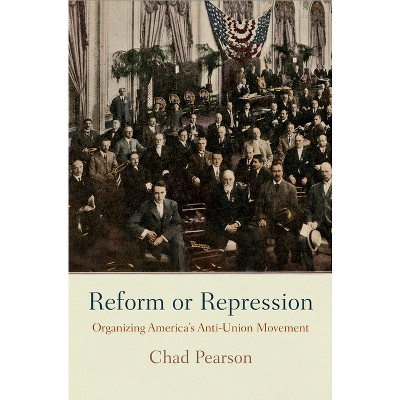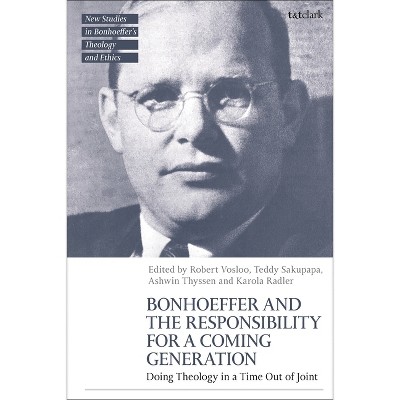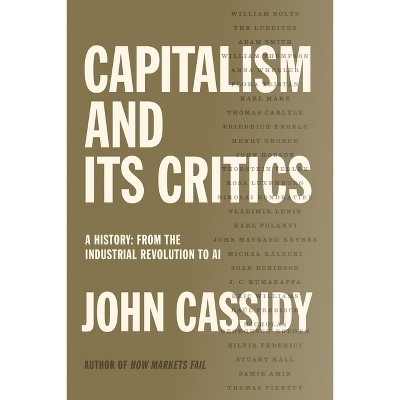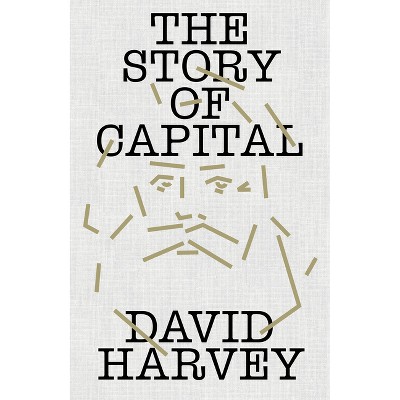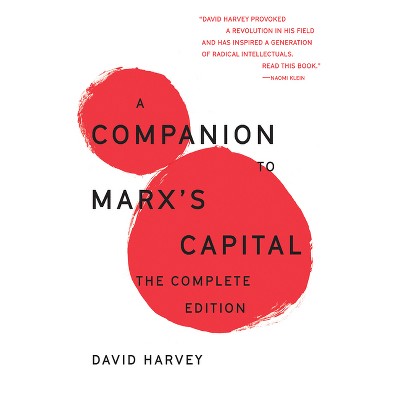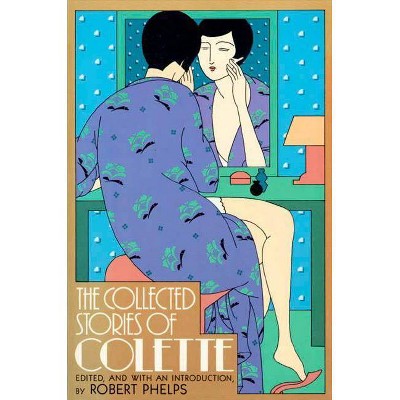Sponsored

Capitalism and Its Critics - by John Cassidy
In Stock
Sponsored
About this item
Highlights
- A Financial Times Most Anticipated Book of 2025A Publishers Weekly Top 10 Book of 2025A sweeping, dramatic history of capitalism as seen through the eyes of its fiercest critics.
- About the Author: John Cassidy is a staff writer at The New Yorker and the author of Dot.con: The Greatest Story Ever Sold and How Markets Fail, which was a finalist for the Pulitzer Prize in Nonfiction.
- 624 Pages
- Business + Money Management, Economic History
Description
About the Book
"At a time when artificial intelligence, climate change, inequality, trade wars, and a right-wing populist backlash to globalization are raising fundamental questions about the economic system, Capitalism and Its Critics provides a kaleidoscopic history of global capitalism, from the East India Company and Industrial Revolution to the digital revolution...From the English Luddites who rebelled against early factory automation to communists in Germany and Russia in the early twentieth century, to the Latin American dependistas, the international Wages for Housework campaign of the 1970s, and the modern degrowth movement, the absorbing narrative traverses the globe." --Book Synopsis
A Financial Times Most Anticipated Book of 2025
A Publishers Weekly Top 10 Book of 2025
A sweeping, dramatic history of capitalism as seen through the eyes of its fiercest critics.
Capitalism has long been understood as a driving force behind the biggest political, economic, and social dislocations of our time. But in this sweeping, kaleidoscopic history of the economic system that has shaped our world, the Pulitzer Prize finalist John Cassidy adopts a bold new approach: he examines global capitalism through the eyes of its critics.
Review Quotes
"[A] magisterial new study . . . Is the primary problem with free markets moral, economic or both? Is technology intrinsically bad, or can it be harnessed for progressive ends? Do markets rely on imperialistic expansion, or can domestic consumers sustain them? Is capitalism destined to tear itself apart, or can it weather the downturns it invariably induces? . . . Cassidy does not answer these questions, but his rewarding book provides an impressively lucid guide to a fascinating array of attempts to do so." --Becca Rothfeld, The Washington Post
"An expansive history of capitalism that places less emphasis on economic abstractions like perfectly competitive markets and draws attention instead to how often capitalist systems have fallen short." --Jennifer Szalai, The New York Times "John Cassidy, a British-American staff writer at the New Yorker, is one of the world's leading economic journalists . . . [Capitalism and Its Critics is] fascinating . . . Cassidy tells the stories of some of capitalism's most interesting and influential critics since the eighteenth century. This turns out also to be an illuminating way to tell the story of capitalism itself, the juggernaut that has continually reshaped our world . . . Well-told and well-researched stories." --Martin Wolf, Financial Times "[Cassidy] does a masterful job of tracing the history of critiques of capitalism and of attempts to come up with a workable alternative to it, but also illuminates the evolution of the system itself, showcasing its remarkable knack for reinventing itself and adapting to historical circumstances in order to survive--something it may be in the process of doing again right now." --James Surowiecki, The Yale Review "[Cassidy is] one of the very best economic journalists we have today . . . You will indeed find on every page something that makes you glad to have read the page, and enough narrative momentum to make you eager to turn to the next." --J. Bradford Delong, Democracy"[A] marvellously lucid overview of capitalism's naysayers . . . by far the best primer I have read on the luminaries of the economic left." --Pratinav Anil, The Guardian "One of the joys of Capitalism and Its Critics, John Cassidy's unexpectedly lively romp through the two-and-a-half-century history of capitalism, is its fine sense for dramatic reversals . . . The intelligent beach read of the summer . . . Over twenty-eight punchy, rigorous yet engagingly peopled chapters, Cassidy not only explains the economic theories of Marx, Adam Smith, David Ricardo and Milton Friedman . . . but introduces us to a fabulous cast of lesser-known characters." --Stuart Jeffries, The Telegraph "To normal people, economic theory is soul-crushing at the best of times. But Cassidy makes it all digestible by weaving together, in each chapter, the biography of each of his subjects with their key critique of capitalism, thus humanising otherwise dry debates about economic theory . . . Cassidy's range is impressive . . . He has produced a book that will stimulate much brooding among capitalism's defenders and critics." --Yuan Yi Zhu, The Times (London) "An intriguing account of how some of the most consequential ideas in economics developed, and how they forged the modern world." --The Economist "Cassidy's masterful synthesis of history and biography serves to demonstrate that capitalism is in a permanent state of change not just because of its fundamental nature, but because of how it's continuously being subjected to pushback. The result is a unique and invigorating view of capitalism's history." --Publishers Weekly (starred review) "A sweeping economic history of the to-some-sacrosanct doctrine of capitalism and those arrayed against it over the years . . . Dense with information, free of jargon, and a powerful argument against an increasingly
unsustainable economic system." --Kirkus Reviews (starred review)
"One of the great chroniclers of how money works turns his mind to the system itself. If anyone can sum up the tumultuous and knotty history of the dominant economic system of our era in a brisk six-hundred-and-change pages, it's Cassidy." --John H. Maher, The Millions "Capitalism and Its Critics is everything we've come to expect from John Cassidy. He weaves an engaging and trenchant discussion of key critics of capitalism over its more than two hundred years into a history of capitalism itself. The battle is not only about economic ideas, but also about the VERY nature of our society. Especially now, when some see the failures of capitalism as more than a little responsible for the Trumpian oligarchy while others see its successes as ushering in a new era of AI-led prosperity, this is an illuminating and essential read." --Joseph Stiglitz, winner of the Nobel Prize in Economic Sciences and author of The Road to Freedom: Economics and the Good Society "Fascinating and informative. The history of capitalism is told through the eyes and legitimate concerns of its most articulate critics. This is intellectual history at its best, and essential reading for anyone who wonders how the modern world wandered off course." --Simon Johnson, winner of the Nobel Prize in Economic Sciences and coauthor of Power and Progress "John Cassidy's Capitalism and Its Critics is an impressive history of arguments about capitalism, from the industrial age to our time. Clear and accessible, it is an invaluable touchstone for current debates about economic renewal in our post-globalization moment." --Michael J. Sandel, author of The Tyranny of Merit
"Cassidy takes the reader on a fascinating journey to find out how capitalism has transformed the world. He brings to life well- and lesser-known voices who debate how the system works. The urgency to make it work better for those outside the top 1 percent is palpable." --Wendy Carlin, professor of economics, University College London and CORE Econ
"It's about time we had a history of capitalism told through the eyes of its critics. For too long the predominant global system for safeguarding the power of the few against the needs of the many has been thought of like the weather: inevitable and eternal, something that cannot be changed, that can only be borne or enjoyed, depending on the day. Cassidy is more storyteller than bomb thrower, and one can only hope this gets the mainstream attention it deserves." --Literary Hub
About the Author
John Cassidy is a staff writer at The New Yorker and the author of Dot.con: The Greatest Story Ever Sold and How Markets Fail, which was a finalist for the Pulitzer Prize in Nonfiction. He lives in New York City.Shipping details
Return details
Frequently bought together



Guests also viewed


